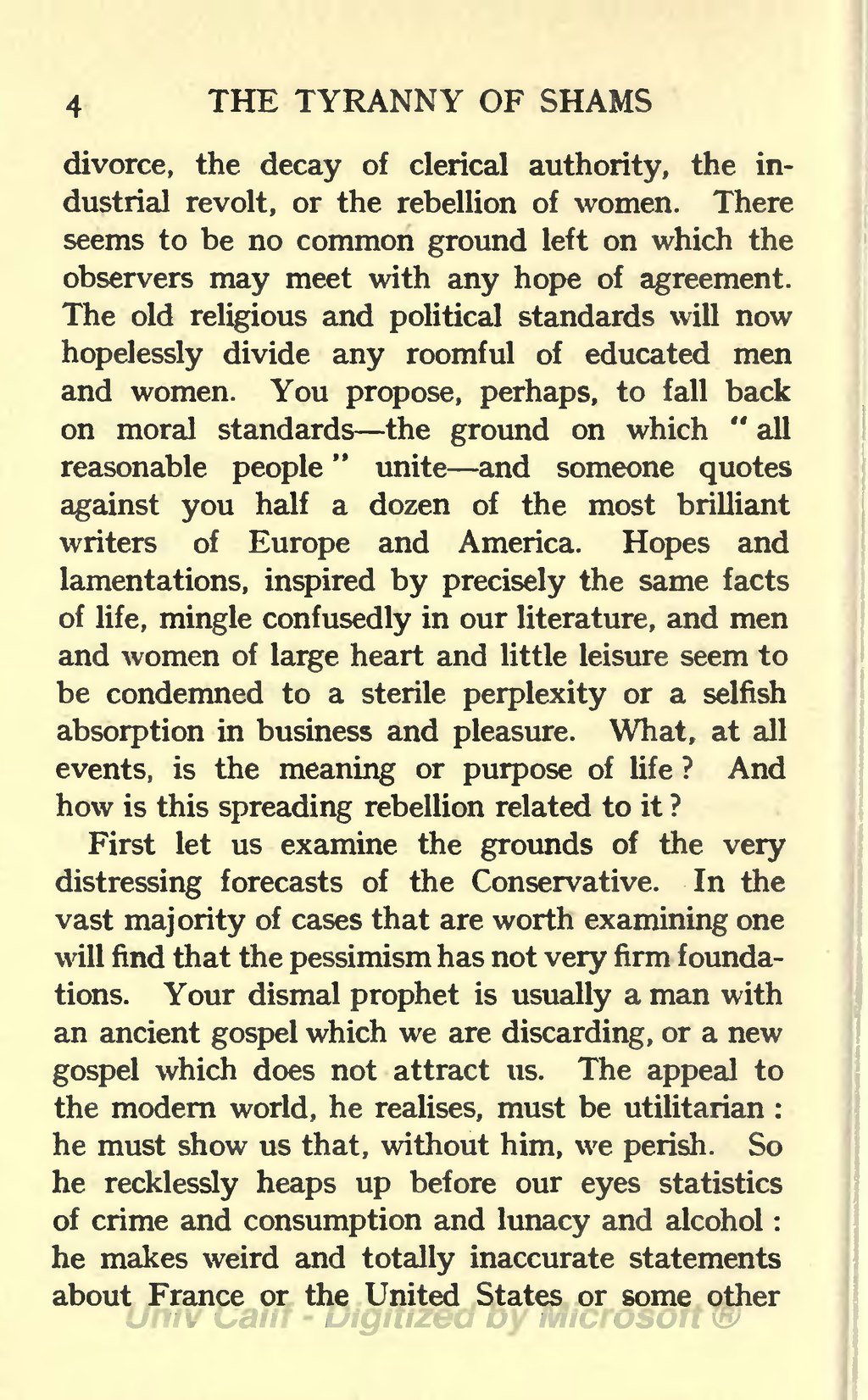divorce, the decay of clerical authority, the industrial revolt, or the rebellion of women. There seems to be no common ground left on which the observers may meet with any hope of agreement. The old religious and political standards will now hopelessly divide any roomful of educated men and women. You propose, perhaps, to fall back on moral standards—the ground on which “all reasonable people” unite—and someone quotes against you half a dozen of the most brilliant writers of Europe and America. Hopes and lamentations, inspired by precisely the same facts of life, mingle confusedly in our literature, and men and women of large heart and little leisure seem to be condemned to a sterile perplexity or a selfish absorption in business and pleasure. What, at all events, is the meaning or purpose of life? And how is this spreading rebellion related to it?
First let us examine the grounds of the very distressing forecasts of the Conservative. In the vast majority of cases that are worth examining one will find that the pessimism has not very firm foundations. Your dismal prophet is usually a man with an ancient gospel which we are discarding, or a new gospel which does not attract us. The appeal to the modern world, he realises, must be utilitarian: he must show us that, without him, we perish. So he recklessly heaps up before our eyes statistics of crime and consumption and lunacy and alcohol: he makes weird and totally inaccurate statements about France or the United States or some other
